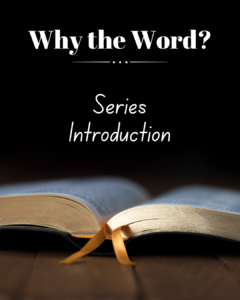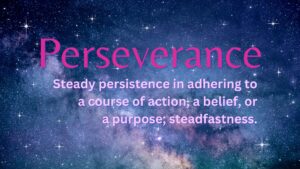
The Law of the LORD is perfect, restoring the soul;
The testimony of the LORD is sure, making wise the simple.
Psalm 19:7 (NASB2020)
Your soul is what makes you you. Generally referred to as the “mind, will, and emotions,” your soul is one third of who you are: Spirit, Soul, and Body.
And I have a true example to share that illustrates just how well the Word of God restores the soul.
There is a man I’ve known about 40 years. I met him at church, and it became quickly apparent that he was quick witted and highly intelligent. In conversation, he once explained that this hadn’t always been the case.
According to him, when he got saved he’d been so destroyed by drugs that he didn’t have two brain cells to rub together. But he heard that the Word of God has the power to restore the soul and he took that promise literally. He dove headfirst into the Bible and has never left it.
The Word of God restored—repaired, revived, converted, refreshed, renewed (depending on your translation)—his soul. It also “made wise the simple,” as it declares at the end of Psalm 19:7.
His is a dramatic account, but yours can be too. If you feel like you’re not smart enough or don’t have the brainpower to read the Bible, remember that he didn’t either. Sometimes you simply have to step out in faith and ask God to teach you as you read.
It does help to find a translation you can relate to. I have sixteen Bibles in eleven different translations, and each of those translations serves a purpose.
- Most of the scriptures I have memorized are from the King James Version, because its poetic nature makes memorization easier—for me anyway.
- If I’m doing a straight readthrough, my go-to is the New Living Translation, because it’s the closest to the way I think and talk.
- If I want a better grasp of how an Israelite would have read a passage, I grab either my Complete Jewish Study Bible or The One New Man Bible.
Intimidated yet?
Don’t be.
My first Bible, or the first one I really used, was a New American Standard, and I can tell you that the 2020 edition of that Bible (NASB2020) is one of the best. That might be the prime choice for you.
My point is that, if you’re new to the Bible, you’ll find it easier to understand if you choose the right translation. With internet access, that’s a piece of cake. All you need to do is head to blueletterbible.org and use their tools to start comparing Bible translations.
It seems almost too simple to say the Bible restores your ability to think and reason, but I’ve seen proof of this truth time and time again. And it does a lot more, as we’ll see while working through this series.
Truly getting into God’s Word is a life-changing experience. The more time I spend with my Bible, the more I grow in every way—and the hungrier I get.
Stay in the Word—and let the Word stay in you.
Celebrating Jesus!
Tammy C






